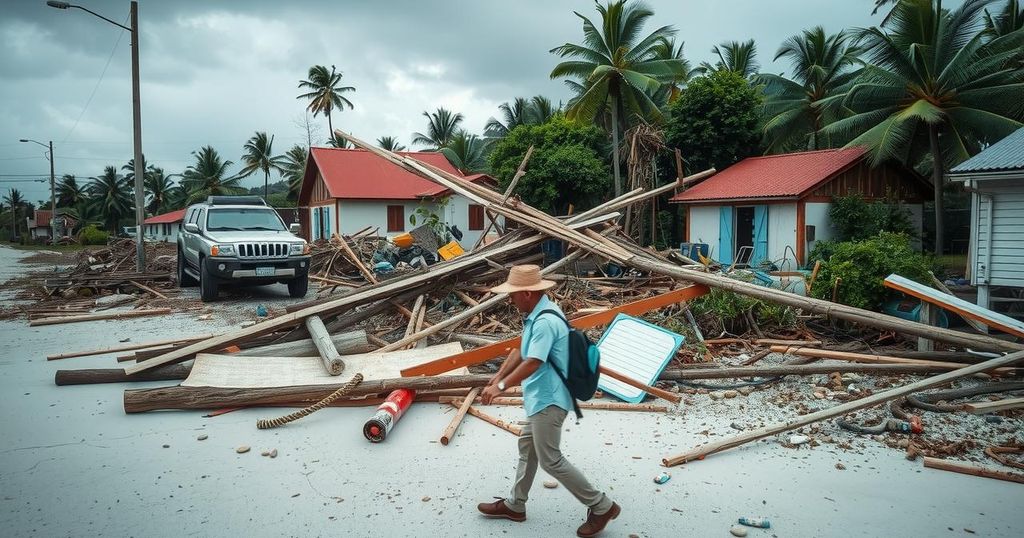Local officials in Mayotte estimate that nearly 1,000 people may have died as a result of Tropical Cyclone Chido, which hit on Saturday, leading to widespread devastation. Emergency crews are engaged in rescue efforts, with significant damage noted to homes and infrastructure. The cyclone is the worst to hit the region in nearly a century, prompting a response from the French government, including the deployment of soldiers and firefighters for disaster relief and recovery.
Local authorities in Mayotte, a French territory situated near the coast of Mozambique, are estimating that nearly 1,000 residents may have perished due to the devastating impact of Tropical Cyclone Chido, which struck the archipelago on Saturday. On Monday, emergency responders mobilized in efforts to rescue individuals trapped amidst the widespread destruction that claimed homes and educational institutions, and severed essential utilities. With winds exceeding 200 kilometers (124 miles) per hour, the cyclone has been deemed the most destructive storm in nearly a century for the region.
Initially, the reported death toll was at 14; however, Mayotte Prefect Francois-Xavier Bieuville noted during a local media interview that numbers could potentially reach several hundred, possibly even thousands. The cyclone inflicted severe damage across this densely populated territory before advancing towards the islands of Comoros and Madagascar, culminating in landfall in Mozambique. In response to the crisis, France’s interior minister arrived in the capital, Mamoudzou, overseeing the urgent deployment of hundreds of soldiers and firefighters to facilitate recovery operations.
Significantly, an estimated one-third of Mayotte’s 320,000 inhabitants reside in shantytowns featuring precarious sheet-metal roofs, rendering them particularly susceptible to harsh winds. The territory, recognized as the poorest within France, heavily relies on financial support from the French government.
Tropical Cyclone Chido has been characterized as one of the most catastrophic storms to impact Mayotte’s residents in almost a century, exacerbating existing vulnerabilities within this impoverished French territory. The region’s geography, coupled with its economic reliance on offshore aid, contributes to the profound effects of severe weather events, such as prolonged disruptions in power and communications. The cyclone not only affected Mayotte but also wrought havoc on neighboring islands and mainland Africa, underscoring the interconnectedness of regional climate risks. Emergency response capabilities are challenged given the territory’s limited resources, thereby amplifying the urgency of assistance from the French government and international community to alleviate distress in the aftermath of this natural disaster. France’s proactive measures, including deploying military support and providing relief resources, reflect significant efforts to restore order and support recovery processes in the wake of such catastrophic events.
In conclusion, the impact of Tropical Cyclone Chido on Mayotte has been profoundly devastating, with local officials estimating a death toll that could reach as high as 1,000 individuals. While emergency services work tirelessly on rescue efforts amidst widespread destruction and the challenging conditions faced within the territory, the need for substantial aid and recovery initiatives remains dire. Support from the French government and international bodies will be crucial in addressing the extensive human and infrastructural toll of this natural disaster, aiming to rebuild the community in the coming months.
Original Source: www.claimsjournal.com






